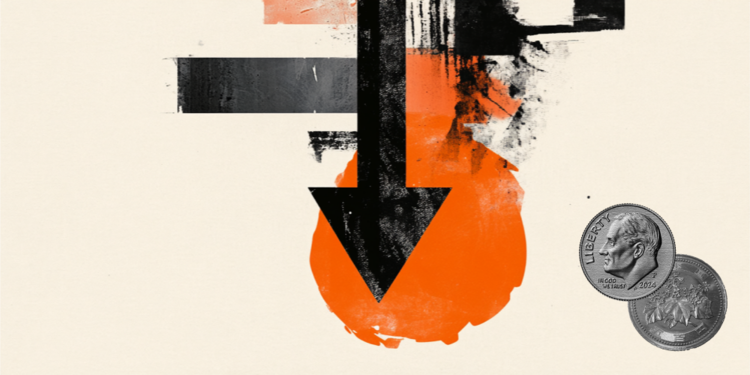The communicator and digital influencer Felipe Neto said, in an exclusive interview with CNN that “the creation of specific regulations for our virtual life is the only way to safeguard freedom and hold accountable excesses”.
Neto’s main concern is to maintain a healthy environment on the internet, and for that he says that everyone should understand that “digital life has already become a fundamental part of existence and needs basic rules of social functioning to protect the individual and collective rights of all”.
Neto is going to participate next week, in Paris, in the first global conference on internet and social media regulation promoted by the United Nations Educational, Scientific and Cultural Organization (Unesco).
With more than 44 million followers on YouTube, he will be one of the main representatives from Brazil at the conference – which already has more than two thousand subscribers to watch the lectures and debates. Unesco’s main motto for the event is: “For a Trustworthy Internet”.
In the interview, Neto said that “it is essential that specialists from different areas communicate worldwide about this, which is one of the greatest challenges of today”.
According to him, “the internet is no longer a ‘local’. It is not the internet that should be most trusted, but humanity itself, through both physical and digital life.”
Neto also made a quick analysis of the performance of social networks in this matter.
“The system of incessant pursuit of profit leads social networks to act against the public interest, as they need to prioritize keeping the user connected, which enhances radicalization with extremist content,” said the influencer.
“We are in the middle of a media war, where a human being’s attention is the most valuable asset there is. The search for attention has radicalized countless societies around the world, driven by powerful artificial intelligence algorithms that show exactly what will hook your mind to stay one more minute online”, he said.
President Luiz Inácio Lula da Silva (PT) was also invited to the conference and will record a video with a message for the participants.
Lula defends stricter regulation of the internet and social networks, and has already said that the matter should be dealt with by the G-20, the group of the largest economies on the planet.
The minister of the Federal Supreme Court (STF) Luís Roberto Barroso will also be at the conference. Barroso told CNN that it is necessary to reach “an optimal regulatory point” on the internet to preserve democracy and freedom of expression.
See below for more details of Felipe Neto’s interview with CNN:
CNN: This will be UNESCO’s first global conference on the Internet. The motto is: For a reliable internet. What is the importance of an event like this? And how can the internet actually be more reliable?
Felipe Neto: It is essential that experts from different areas communicate worldwide about this, which is one of the greatest challenges of today. The internet is no longer a “place”. It is not the internet that should be most trusted, but humanity itself, through both physical and digital life. It is necessary to break the barrier of treating the virtual environment as “something one does” or “a place one frequents”. In my view, it is necessary to understand that digital life has already become a fundamental part of existence and, therefore, it needs basic rules of social functioning to protect the individual and collective rights of all who live it.
CNN: You are the biggest digital influencer in Brazil, one of the countries with huge internet activity. What will your message be at this conference? What do you intend to say to this global audience?
Felipe Neto: My area is digital communication. How to reach different audiences, navigate different platforms and use this communication power to try to make a positive difference. That’s how I created the VERO Institute and the Cala-Boca Já Morreu movement. Aligned with this, I defend a broad debate to treat the digital life of every individual as a basic right, with its duties and responsibilities. Only in this way can we prevent censorship, authoritarian decisions and restrictions. The creation of specific regulations for our virtual life is the only way to safeguard freedom and hold accountable excesses.
CNN: The UN itself says that the internet is an unprecedented power tool for communication and the dissemination of knowledge. But they say social media is also spreading misinformation, hate speech and conspiracy theories that damage the fabric of our societies. What is the danger of this? And how to contain this danger?
Felipe Neto: That’s the billion dollar question and the big reason these debates are so important. There are no easy answers. The incessant search for profit system leads social networks to act against the public interest, as they need to prioritize keeping the user connected, which enhances radicalization with extremist content. We are in the middle of a media war, where a human being’s attention is the most valuable asset there is. The quest for attention has radicalized countless societies around the world, driven by powerful artificial intelligence algorithms that show exactly what will hook your mind to stay one more minute online. In the middle of this debate there are millions of nuances, from the infinite timelines to the macroeconomic system of functioning of the platforms. The solution to all of this does not exist all at once. For me, the path is to work digital life just as we work our physical life, with rules and duties, adapting, evolving and discussing for eternity how we can transform our social environment into the most harmonious possible.
Source: CNN Brasil
Charles Grill is a tech-savvy writer with over 3 years of experience in the field. He writes on a variety of technology-related topics and has a strong focus on the latest advancements in the industry. He is connected with several online news websites and is currently contributing to a technology-focused platform.







